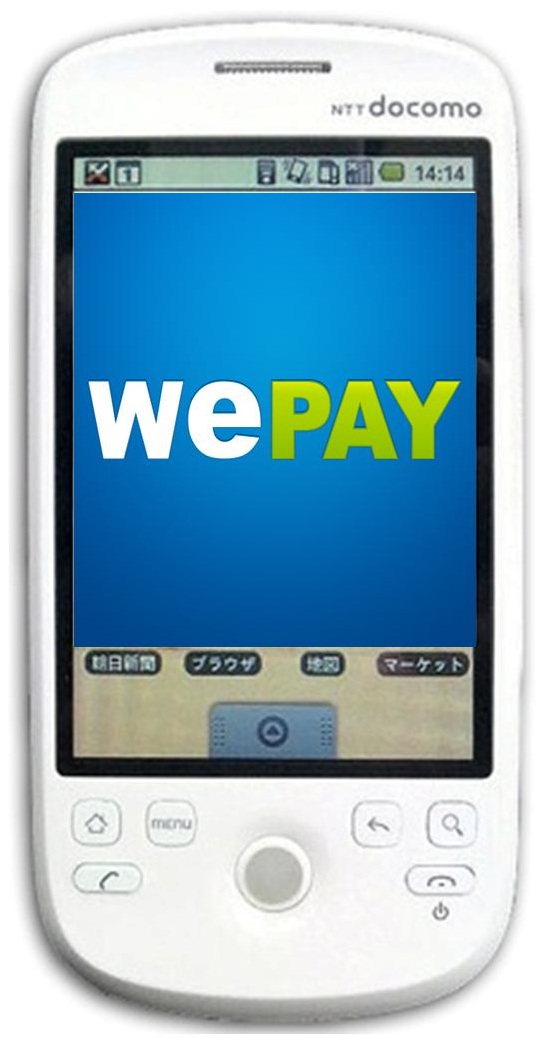 This new service is geared toward companies that receive funds through traditional paper checks.
This new service is geared toward companies that receive funds through traditional paper checks.
WePay, a startup located in Palo Alto, California, has just announced that it is taking its first steps into the mobile payments marketplace by using its technology to help to replace paper checks.
The first app from the company was released last week and is designed for use by iOS only.
Though the company had previously provided online services, this app opens it up to mobile payments on iPhones and iPads. The application allows both the owners and employees of small sized businesses to be able to process credit card transactions and create invoices through their tablets and smartphones.
Though this may sound similar to other mobile payments services, it does stand out in some ways.
According to the CEO of WePay, Bill Clerico, though it may sound as though it is somewhat like Square or GoPayments, it is unlike them because it does not use an external credit card reading devices in order to make the transactions faster to process. Instead, the digits of the cards will be entered into this system the “old fashioned” way, but using a numeric keypad to type them in.
Clerico explained that “If you’re running a food truck or something where you have hundreds of customers a day, there is no way you’re going to use our app,” however he did go on to say that the app is not aimed at those customers. Instead, it is meant for businesses that employ 10 or fewer people, and whose transactions are primarily made up of checks. He explained that “I think our biggest competitor is paper.”
Clerico also added that when all is said and done, this mobile payments app means that small businesses can process transactions in a number of different ways, and this will help to keep them all in one place. He believes that this is an important step for the company, as smartphones and tablets are becoming increasingly important for processing, and desktops are losing importance in this area. He feels that the niche that his company has found will help to secure its position in the “noisy” market.
 Mobile security becoming a serious issue as hackers find way to exploit Google Play
Mobile security becoming a serious issue as hackers find way to exploit Google Play
A new trend is emerging in the world of malware, and it is targeting the Android platform. Hackers are beginning to work their way into Google Play by disguising their malware as legitimate applications. Typically, Google can remove these applications from the Play store with relative ease, but many hackers are hijacking Play accounts from legitimate developers to avoid Google’s own protection methods. This trend could be a major blow against the Android and the platforms ongoing fight in the realm of mobile security.
Google may be unable to keep up with emerging trends in the mobile security space
Mobile security is quickly becoming more important than physical security. The information consumers share through their mobile devices is very valuable, especially to those that know how to exploit such information. Given that mobile technology is relatively new, the security of mobile devices and mobile applications has yet to mature. While Google has taken steps to ensure the security of the Play marketplace, many hackers have found a way to completely circumvent the company’s endeavors in mobile security.
Hackers target developers and not just consumers
Many hackers are beginning to target legitimate developers rather than just consumers. Developer Play accounts are being hijacked and used to distribute applications disguised as safe pieces of software. In many cases, this malware is actually being marketed as mobile security software for smartphones and tablets. Hacking a developer Play account is not the only method that malicious parties are using to gain access to consumers. Some are simply buying these accounts from developers outright.
Developers offered funds for each malicious application they publish to Google Play
Some hacking groups are offering $100 to developers with verified Play accounts for each malicious application they publish. Google charges developers $25 to put an application on the Play marketplace, which can be a hefty sum for small scale developers that do not have a strong presence in the mobile market. Hackers are preying on these developers by offering them a financial incentive to distribute malicious applications and circumvent the mobile security protections that Google has put in place.
 This new service is geared toward companies that receive funds through traditional paper checks.
This new service is geared toward companies that receive funds through traditional paper checks.
 Mobile security becoming a serious issue as hackers find way to exploit Google Play
Mobile security becoming a serious issue as hackers find way to exploit Google Play